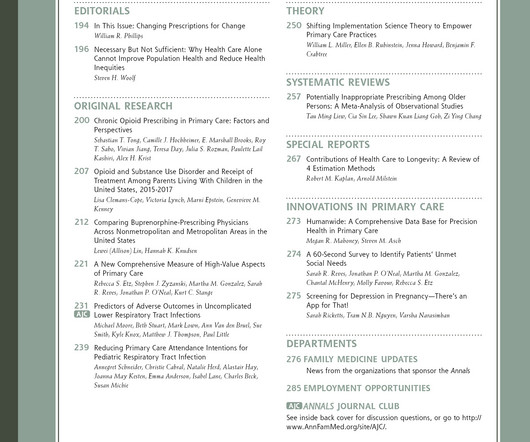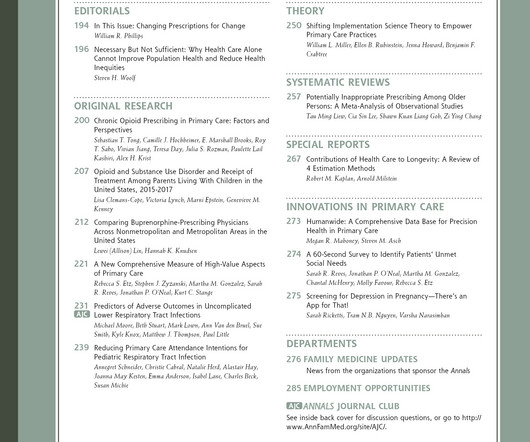Diabetes related complications among Ethiopian Jews-Outcomes of a 10 years cohort study in Israel [Population health and epidemiology]
Annals of Family Medicine
NOVEMBER 20, 2024
The context: Immigrants, particularly those moving from lower to higher-income countries, often exhibit a heightened susceptibility to non-communicable diseases, such as Type 2 diabetes (T2D), which may manifest at an earlier age and present with different complications compared to the native population. 0.83, HR 0.70; 95% CI 0.65-0.76,

























Let's personalize your content